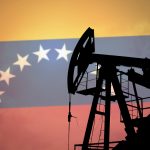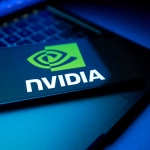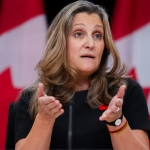President Donald Trump brushed off questions about his family's business links to Saudi Arabia during a tense Oval Office meeting with Crown Prince Mohammed bin Salman on November 18, 2025. He called the inquiries fake news and stressed his hands-off approach to the Trump Organization. Yet fresh financial disclosures paint a sharper picture of ongoing profits flowing from Saudi investors into Trump family coffers.
The timing could not be more charged. Just hours after the sit-down, the White House announced blockbuster agreements including arms sales for hundreds of tanks and fighter jets, plus a civil nuclear pact. Saudi Arabia pledged to ramp up U.S. investments from $600 billion to nearly $1 trillion, fueling speculation about intertwined business and diplomacy. Trump hailed the crown prince as a visionary leader, conveniently sidestepping the shadow of Jamal Khashoggi's 2018 murder, which U.S. intelligence tied to bin Salman's inner circle.
These developments hit close to home for Trump. His adult children run the family empire, and records show it collected about $50 million from Saudi-connected ventures in 2024 alone. That figure underscores a pattern where private gains shadow public policy, leaving many Americans wondering if the lines between boardroom and Situation Room have blurred beyond repair.

Trump and Mohammed bin Salman shake hands, a symbolic moment reflecting the lucrative Saudi deals tied to the Trump Organization and raising questions about ethics, legality, and presidential influence.
The Surge in Saudi-Linked Revenue: From Towers to Licensing Fees
Dig deeper, and the numbers reveal a web of deals spanning decades, with fresh momentum in 2025. The Trump Organization's portfolio boasts projects like Trump Tower Jeddah and Trump Plaza Jeddah, ambitious builds blending offices, residences, and lush green areas in Saudi's booming port city. These aren't fly-by-night schemes; they're backed by deep-pocketed local developers hungry for the Trump brand's glamour.
Then there's Jared Kushner's orbit. His private equity firm, Affinity Partners, locked in $2 billion from the Saudi Public Investment Fund starting in 2021, complete with a 1.25% management fee. Over five years, that setup could net Kushner's outfit $125 million in fees alone, a steady drip of income with minimal day-to-day hassle. Historical threads add grit to the tale, from a 1987 yacht tied to arms dealer Adnan Khashoggi to unloading a Trump World Tower floor for $12 million in 2001.
Fast-forward to now, and licensing remains the quiet powerhouse. In 2022, Trump pocketed roughly $6 million for slapping his name on an Oman resort by Dar Al Arkan. On the heels of bin Salman's visit, the Trump Organization unveiled yet another tie-up with Saudi firm Dar Global for a luxury project in the Gulf, signaling more windfalls ahead. It's a reminder that while Trump golfs at Mar-a-Lago, his legacy machine hums on, turning gold from global handshakes.
According to analysis reviewed by Finance Monthly, these streams highlight a resilient model where family brands outlast political storms. Donald Trump Jr. captured the buzz at a recent Dubai summit, calling the region's opportunities spectacular and ripe for bold players.
Decoding Licensing Deals: The Low-Effort Path to Big Bucks
At the heart of this financial puzzle lies one clever strategy that everyday investors might envy: licensing agreements. Picture it simply as renting out your family name like a high-end billboard. The Trump Organization doesn't build or manage these Saudi projects; it just lends the sparkle of the Trump logo for a hefty upfront fee or ongoing royalties, often 3% to 5% of gross revenues.
This setup shines for its low risk. No construction headaches, no staffing woes, just passive cash rolling in year after year. For consumers eyeing real estate side hustles, it's a blueprint: leverage what you have, whether a personal brand or niche expertise, to partner with bigger operators abroad. According to analysis reviewed by Finance Monthly, such deals generated over $100 million annually for the Trumps pre-presidency, a figure that's climbed with Gulf diversification away from oil.
Here's the fresh twist in 2025. With Saudi's Vision 2030 pushing tourism and urban growth, licensing fees could swell 20% to 30% in coming years, per industry benchmarks from PwC reports on Middle East real estate. Take a real-world parallel: a mid-tier hotel chain anonymized here licensed its name to Asian developers, pocketing $15 million yearly on zero operational costs, much like Trump's model. The insight? These aren't just elite games; they democratize wealth-building if you spot cross-border trends early. But for Trump, it amplifies the unease, turning foreign policy wins into personal paydays that test the soul of public trust.
Ethics in the Spotlight: When Family Fortunes Meet Foreign Policy
Critics see red flags waving high. These Saudi ties, they argue, brew conflicts that erode democratic guardrails, especially with billions in arms flowing amid human rights shadows. Trump counters that his kin's ventures stand apart from his Oval Office moves, a private affair shielded by blind trusts he never fully embraced.
The emotional weight lands heavy. Families like the Khashoggi's still grieve a loss intelligence pinned on bin Salman's orders, yet deals multiply unchecked. It's the kind of disconnect that stirs quiet fury in living rooms across America, where folks balance checkbooks while leaders juggle empires. Even allies whisper concerns; branding pacts feel like veiled tributes, direct cash for clout with little sweat equity required.
Supporters push back, framing it as savvy capitalism in a cutthroat world. Still, the scale tens of millions strong each year forces a reckoning. Does profit from princes compromise the presidency, or is it just business as usual in global chess?

Trump Tower Jeddah stands as a symbol of the Trump Organization’s lucrative Saudi deals, highlighting ongoing profits from international licensing agreements while raising questions about ethics and presidential connections.
Wrapping the Web: Power Plays and the Price of Prosperity
In the end, Trump's Saudi saga spins a yarn of ambition unbound, where luxury towers and licensing lore keep the coffers full under Washington's glare. The $50 million haul from last year alone spotlights stakes that dwarf most family businesses, blending thrill with thorn. As 2025 unfolds with trillion-dollar pledges and fresh project unveils, one truth endures: in politics and profit, the house always wins, but at what hidden cost to us all?
This isn't abstract drama; it's the pulse of how power shapes purses, urging us to demand clearer lines between the two.
What Readers Are Wondering Next
What is Donald Trump’s net worth in 2025?
Forbes pegs Donald Trump's net worth at $6.3 billion as of November 2025, a robust figure buoyed by real estate holdings, cryptocurrency ventures like his $Trump token, and licensing royalties worldwide. This wealth, amassed over decades, weathers legal battles and market dips, showcasing resilience that many admire yet scrutinize amid his second presidency. It underscores how personal fortunes intertwine with national narratives, leaving everyday folks to ponder the American dream's true price tag.
How do the Trump family's Saudi deals influence U.S. foreign policy?
The Trump family's Saudi business entanglements subtly steer U.S. policy toward warmer Gulf ties, evident in the November 18, 2025, arms and nuclear pacts that locked in $1 trillion in investments.
Critics worry these personal stakes prioritize profit over principles, like human rights, potentially softening stances on issues such as Yemen's conflict or Khashoggi's case. Supporters see it as pragmatic deal-making that boosts jobs and security. Overall, it blurs diplomacy's edges, prompting Congress to eye stricter emoluments clauses, ensuring policy serves the public, not just family ledgers.
What are the most talked-about Trump Organization projects in the Middle East right now?
Buzz swirls around Trump Tower Jeddah and Trump Plaza Jeddah, towering symbols of Saudi's urban boom with mixed-use spaces drawing high-end buyers. Fresh off the crown prince's visit, a new Dar Global partnership promises luxury villas in Oman, echoing 2022's $6 million licensing win.
These ventures, blending opulence and opportunity, highlight the organization's knack for Gulf expansion. For curious eyes, they offer a window into how branded living reshapes skylines, though ethical whispers remind us progress carries complex baggage in volatile regions.














